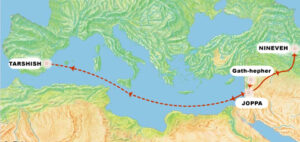2403AFC011924 – Turnarounds (←😊 Podcast)
Read it online here, please. And please – when you visit there – use one of the social media links at the bottom of the page to share this post. Thank you! And remember, we now have a READER VIEW available, so share this link or this email often.
Do you know someone who enjoys Bible study, or who might like to read this? Ask them to email us or to subscribe on our blog-site.
 Mark 1:14-15 – 14 Now after John was arrested, Jesus came to Galilee, proclaiming the good news of God, 15 and saying, “The time is fulfilled, and the kingdom of God has come near; repent*, and believe in the good news.”
Mark 1:14-15 – 14 Now after John was arrested, Jesus came to Galilee, proclaiming the good news of God, 15 and saying, “The time is fulfilled, and the kingdom of God has come near; repent*, and believe in the good news.”
*metanoeite (←Click) – Reconsider, “think differently after,” “after a change of mind“; to repent (literally, “think differently afterwards”) In short, do a 180°.
1 Corinthians 7:29 a, 31 b – 29 aI mean, brothers and sisters, the appointed time has grown short, 31 b the present form of this world is passing away.
Psalm 25:8-9 –
8 Good and upright is the Lord;
therefore he instructs sinners in the way. (↔ Music Link)
9 He leads the humble in what is right,
and teaches the humble his way.
Jonah 3:4-5, 9-10 – 4 Jonah began to go into the city, going a day’s walk. And he cried out, “Forty days more, and Nineveh shall be overthrown!” 5 And the people of Nineveh believed God; they proclaimed a fast, and everyone, great and small, put on sackcloth. 9 Who knows? God may relent and change his mind; he may turn from his fierce anger, so that we do not perish.” 10 When God saw what they did, how they turned from their evil ways, God changed his mind about the calamity that he had said he would bring upon them; and he did not do it.
E pili mau na pomaika‘i ia ‘oe a me ke akua ho’omaika‘i ‘oe, ʻŌmea! (May blessing always be with you and may God bless you, Beloved!) Today we come to another extraordinary set of readings on repentance. You’ll see I have them in reverse order – Gospel, Psalm, Epistle, and Old Testament. Yup. That’s the first turnaround in this post. I suspect it will not be the last.
The words for repent, repentance, turn, turn around, and reconsider occur over 140 times in Scripture. That’s enough times to make us realize God is serious about this command. And yes, it is a command! “Turn [around] to me and be saved”(↔ Music Link) isn’t a question or a suggestion – it is a direct order. In this Great Battle against The Darkness who would dare disobey? In the New Testament, John the Baptizer socked it to the Pharisees and Sadducees coming for Baptism in Matthew 3:7-12 – (Follow this link) and refers to them as a “brood of vipers.” Now, remember that a brood is a group of young critters born around the same time – like a brood of baby birds or reptiles. Jesus echoes these words in Matthew 12:34, and 23:33 (↔ Click it).
The inference drawn from that by the Pharisees, Sadducees, listeners, and Disciples (including us) is that they are sons of “that old Serpent, Satan.” That’s a pretty serious insult, but also well-deserved. Because why? Because they were unrepentant. We’ve commented here often about this being the first message of the beginning of the Gospel, the start of the Good News. Repentance is called for and presented in all of the Gospels including the Gospel of John. Nitpickers will complain that even though the noun for repentance {Metanoia} occurs 22 times in the Old Testament and the verb for repent (metanoeó) occurs 34 times, neither of those words occur in John’s Gospel. However, as an old aphorism states, “Absence of Evidence Does Not Mean Evidence of Absence.” John uses a more direct phrase – “sin no more,” to tell sinners to turn about from their former life of sin and to live in surrender and obedience to God.
In the Gospels, then, we have a continuation of God’s command to turn back to him, to  make a turnaround in our lives, as this symbol represents permission to make that sort of reorientation. Let’s think about what this means for a moment. If I am in traffic and see this sign, I know it is permissible form me to cease going forward, to cross the center line dividing traffic flow, and to begin traveling in the opposite direction. Nowhere on this sign do we read, “When safe,” or “When appropriate,” “On green arrow only,” or even “When necessary.” We are left to use common sense to make this maneuver safely. We know to be careful when we do this because someone else in the oncoming traffic might not expect us to turn around. In The Kingdom of God, we are instructed to make a U-Turn regardless of the oncoming traffic. Now, as some of us know, that can still be a dangerous thing in some situations. Take the example of abusive relationships.
make a turnaround in our lives, as this symbol represents permission to make that sort of reorientation. Let’s think about what this means for a moment. If I am in traffic and see this sign, I know it is permissible form me to cease going forward, to cross the center line dividing traffic flow, and to begin traveling in the opposite direction. Nowhere on this sign do we read, “When safe,” or “When appropriate,” “On green arrow only,” or even “When necessary.” We are left to use common sense to make this maneuver safely. We know to be careful when we do this because someone else in the oncoming traffic might not expect us to turn around. In The Kingdom of God, we are instructed to make a U-Turn regardless of the oncoming traffic. Now, as some of us know, that can still be a dangerous thing in some situations. Take the example of abusive relationships.
It could be said that deciding to get out of a situation like that is like making a U-Turn; I think of it more as taking an exit ramp without using a turn-signal. It could also be said that making a U-Turn in an abusive relationship could mean staying and battling back by being more assertive or even equally aggressive. That could be as dangerous as turning into oncoming traffic which might not yield to our change of position. With God, though, when it comes to sin, we are dealing only with God and – usually – only with oneself. That is because repenting of our own sin requires taking responsibility for our own behavior. Earthlings have always found that difficult to do. Recall that Eve blamed the snake, and Adam blamed Eve. It’s a tendency as old as Creation, so how do we get to that curve in the Road Back Home?
Well, the most obvious reason, it seems to me, is to weigh the consequences. The Apostle Paul has some sage advice, as usual, in our Key Verse from 1 Corinthians. I’ve “telescoped” the language there, so please use this link to see the passage in context. He is talking about the condition, the state-of-living, of his readers. He counsels them on the basis of his experience not to make any changes in whatever circumstance they find themselves as earthlings. If married, stay married; if unmarried, stay unmarried; if employed as a servant, don’t strive to be came a freedman; if free, be a slave only to Christ. The reason for this is what I have presented in our Key Verse – the World as we know it is passing away. Now, we recall that The Apostle Paul and many, if not most, of the Christians of that era sincerely thought that the return of the Lord was imminent – in a couple more weeks and Tah-Dah! We Christians have been believing that – faithfully for sure – for about 1,900 years give or take. IT IS STILL TRUE, but in 2024, the important concept is “the appointed time has grown short.” If it was short in The Apostle Paul’s time, it is even shorter in our time! As we are reminded often, we do not know the day or the hour. (↔ Music Link) All the more reason, then, to listen to what the Lord has in his teaching in the Key Verse from the Psalms.
God is a Good God, rock solid in all his promises. Do you remember the Four Core Attributes of God we have listed before? Our God is known by his Perfect Integrity, Endless Mercy, Everlasting Love, And Eternal Salvation. His integrity is always primary because he is always One, yet his Mercy is endless because his Love is everlasting. Now, that’s really upright! To top it all off, he meticulously teaches us, encourages us, sustains us, and saves us without ever abandoning us. That is why God, and God alone, can require our conformity and authentic commitment to his Law – first as the Law of Governance and – in these final days – as the Law of Love. For millennia, he has instructed us in the way of righteousness for his Name’s sake. The only prerequisite for learning from him is for us to listen and obey as his humble children, and to desire to love him and to serve him all the days of our lives. That can sound like a really big commitment until we accept the fact that he provides everything we could possibly need to handle it. That is the Perfect Integrity of Love, and it is always there for us to employ and enjoy. What a GOOD God we have! Now, let’s turn our attention to a guy who found that out in a very big way, and then got angry about it.
I’m talking about our old friend Jonah. What a life he lived! He was “employed” as a  Jewish Prophet. He lived around 785 BC in the town of Gath-Hepher which was in the region of Galilee (Zebulun) not far from Nazareth. He got a call from the Lord to travel to Nineveh to warn them they God was going to destroy them because they were so evil. Nineveh was the capital city of Assyria, and the Assyrians were cruel oppressors of the Israelites. They ruled for nearly 1,900 years over the region from what we would today call Eurasia through the entire middle east, and over into Egypt. Check out this map (↔ Click it) to get a grasp of their territory. Jonah knew how cruel the Assyrians were, and he simply refused to go. We all know the story. He hustled over to the coast to the city of Joppa and caught a ship headed toward Tarshish, 2,200 miles across the Mediterranean. I guess he thought God wouldn’t go that far to find him. Well, after a bodacious storm, getting swallowed by a huge fish for three days, and, making it back to the coast, he set off for Nineveh – a mere 600+ miles from Jerusalem.
Jewish Prophet. He lived around 785 BC in the town of Gath-Hepher which was in the region of Galilee (Zebulun) not far from Nazareth. He got a call from the Lord to travel to Nineveh to warn them they God was going to destroy them because they were so evil. Nineveh was the capital city of Assyria, and the Assyrians were cruel oppressors of the Israelites. They ruled for nearly 1,900 years over the region from what we would today call Eurasia through the entire middle east, and over into Egypt. Check out this map (↔ Click it) to get a grasp of their territory. Jonah knew how cruel the Assyrians were, and he simply refused to go. We all know the story. He hustled over to the coast to the city of Joppa and caught a ship headed toward Tarshish, 2,200 miles across the Mediterranean. I guess he thought God wouldn’t go that far to find him. Well, after a bodacious storm, getting swallowed by a huge fish for three days, and, making it back to the coast, he set off for Nineveh – a mere 600+ miles from Jerusalem.
This was no easy journey! He had plenty of time to think about what he had to say and plenty of time to imagine what might happen if he said it! Then he started walking through the city. It was about 60 miles across – a three day walk according to the Bible – and 96 miles around. By the time he had made it ⅓ of the way – one day’s walk – announcing “40 days more and Nineveh will be destroyed,” everyone in the city repented, including the animals! So, as we see in our Old Testament Key Verse, God decided to accept their repentance. We read in Jonah 4 that Jonah was displeased with that result and became angry because the Ninevites repented and thereby escaped destruction. He stomped off in a snit and sat under a shady little hand-made booth to see if they would remain repentant or go back to their old ways and still get destroyed. That didn’t work either. God prepared a bush for him, and he was happy about that, but then God sent a worm to wither the bush, so Jonah was angry again. After the sun rose, God sent a sweltering wind so warm that Jonah was about to faint. At every change, he kept saying, “It is better for me to die than to live.” At every change God asked, “Is it right for you to be angry about [this change]?” Finally God said, “And should I not be concerned about Nineveh, that great city, in which there are more than a hundred and twenty thousand persons who do not know their right hand from their left, and also many animals?” There is the Absolutely Perfect Plan in action!
What is the point of all these turnaround Key Verses? God Loves the heart that is contrite and repents. Whoever will turn around and go back to God will be greatly blessed. Belovéd, is there a turnaround in our future? If not why not, and if so – when? In our Key Verse logo for today, which key-holder is the repentant one? [HINT: The one facing away with the key in his right hand.]
Whatever, whenever, wherever, whoever, however, if ever, forever —
at your service, Belovéd!
Please pray with us here at Share-a-Prayer.
Unless otherwise indicated, all scripture passages are from the New Revised Standard Version Catholic Edition (NRSVCE) New Revised Standard Version Bible: Catholic Edition, copyright © 1989, 1993 the Division of Christian Education of the National Council of the Churches of Christ in the United States of America. Used by permission. All rights reserved.
Biblical languages inserts from Bible Hub (Bible Hub: Search, Read, Study the Bible in Many Languages) Visit at http://biblehub.com

Aloha Friday Messages by Charles O. Todd, III is licensed under a Creative Commons Attribution-ShareAlike 3.0 Unported License





